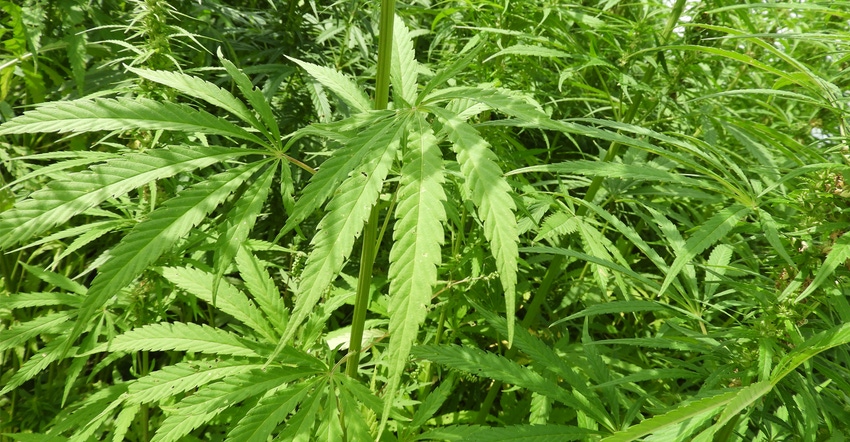December 18, 2017

After a successful inaugural year in which industrial hemp was reintroduced in Pennsylvania, the crop could balloon from less than 50 acres in 2017 to 5,000 acres or more in 2018. The commonwealth will permit up to 50 individual growers or institutions of higher education to grow up to 100 acres apiece. And, those educational institutions may also partner with individual growers to produce larger quantities.
In 2017, the state ag department limited the number of permitted growers to 30. And, they could grow no more than five acres.
“Hemp had a long history in Pennsylvania until it disappeared from the landscape half-a-century ago. But we’ve brought it back and we’re creating new agricultural opportunities in the process,” says Gov. Tom Wolf. “Last year was a learning experience for growers and the Department of Agriculture alike. But even with the small-scale research pilot projects of 2017, it was clear there’s a tremendous enthusiasm among growers. Our expanded program is designed to capitalize on this interest in 2018.”
“The 2017 growing season was incredibly informative for us,” says Russell Redding, state ag secretary. “We learned about the challenges of sourcing seed, controlling weeds, harvesting and finding markets.
“Each of last year’s 14 projects taught us something valuable. Every one of those project leaders are likely to reapply next year. We expect to see the full potential of this industry in 2018.”
Industrial hemp has been grown to produce fiber, food and seed. More recent uses include biofuel and materials to replace fossil-fuel plastics.
Aspiring hemp growers should review the new parameter document to understand the permitting process, then complete and return the 2018 Industrial Hemp Research Pilot Program permit application and application fee before the Jan. 19 deadline. You’ll find those details on the Department of Agriculture Industrial hemp website.
Growers who participated in the 2017 pilot research program may opt to renew their permits to continue an existing project from the previous season, or they may submit a new project. All applications to participate in the 2018 Industrial Hemp Research Pilot Program must be received by 4 p.m., Jan. 19.
Research projects might explore a range of topics, such as planting methods, seed variety trials, fiber or seed yields, optimum fertility levels, pest management, harvesting techniques, product marketing options, conservation, remediation or biofuel.
The permitting process outlines reporting requirements and restrictions related to THC levels, plant management, transportation, branding and other legal responsibilities.
Not medical marijuana
Marijuana is a different variety of Cannabis sativa. It produces higher levels of delta-9 tetrahydrocannabinol (THC) a chemical providing psychoactive effect. Under state and federal law, industrial hemp THC levels must not exceed concentrations greater than 0.3%.
Pennsylvania’s Medical Marijuana Act was passed in April 2016 and is regulated by the Pennsylvania Department of Health. It requires cannabis for medical use to be grown at permitted growing facilities. Medical marijuana must meet strict requirements for purity and specific chemical concentrations.
Source: Pennsylvania Department of Agriculture
For more background on industrial hemp, read:
Industrial hemp undergoes 32-state reality check and testing
Hard realities can bust great hemp hope
You May Also Like




